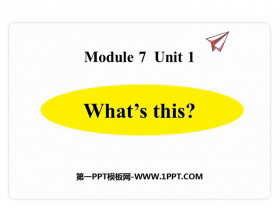







《Exploring English》Section ⅠPPT课件
第一部分内容:课前自学
Ⅰ.单词认读关(先填后背)
1._____n.松树
2._____n. 菠萝
3._____n. 火腿
4._____n. 茄子
5._____adj.晕船的
6._____adj. 晕机的
7._____adj. 晕车的
8._____adj. 想家的
9._____adj.大写的
10._____adj. 独一无二的,独特的
11._____v.雕刻,雕塑→sculpture n.雕塑作品,雕刻品,雕像
12._____adj.(观点、意见等)相反的,相对立的→opposition n.相反,相反面
13._____n.举止,行为→behave v.举止
14._____adj.令人困惑的→confuse v.使……困惑→confusion n.困惑
15._____n.警报器,闹钟→alarmed adj.警觉的
16._____v.显示,反映→reflection n.显示,反映
17._____n.创造性,创造力→create v.创造→creative adj.创新性的
18._____adj.看得见的,可见的→invisible adj.(反义词)看不见的
Ⅱ.词块识记关(先填后背)
1.__________做某事有困难
2.__________例如
3.__________晕船/晕机/晕车/想家
4.__________谈到
5.__________……的反面
6.__________向外看
7.__________烧毁,烧尽
Ⅲ.句式理解关
1.教材原句
Have you ever asked yourself why people often have trouble learning English?你曾问过自己为什么人们学英语经常那么困难吗?
句式解构
have trouble (in) doing sth.“做某事有困难”。
佳句背诵
If you have trouble doing this, you can turn to Professor Li for advice.如果在这方面遇到困难,你可以向李教授寻求建议。
2.教材原句
I hadn't, until one day my fiveyearold son asked me whether there was ham in a hamburger.我从没问过我自己,直到有一天我五岁的儿子问我汉堡里是否有火腿。
句式解构
not ... until ...“直到……才……”。
佳句背诵
You're not going out until you've finished this.
你要做完这个才可以出去。
... ... ...
Exploring English PPT,第二部分内容:新知贯通
一、语篇理解——三遍细读文
Prereading
1.We have learnt English for at least six years. Do you know in which countries people speak English?The following pictures can help you.
2.Are the Englishes in those countries the same?
No.There are American English and British English.
Whilereading
Ⅰ.Reading for the main idea
1.What's the main idea of the text?
A.Compound words.
B.The charm of English.
C.Pine and apple.
D.Differences of English.
2.Find out the main idea of each part.
Part Ⅰ(Para.1) A.The fact that English is created.
Part Ⅱ(Paras.2-6) B.Confusion about some English words.
Part Ⅲ(Paras.7-8) C.People have difficulty in learning English.
Ⅱ.Reading for the details
(Ⅰ)阅读文章第一段,回答第1题。
1.What does the word “This” in sentence 4 refer to?
(Ⅱ)阅读文章第二段,判断第2~4题的正误。
2.We travel in the train or on the bus. ( )
3.We can't say we get homesick when we get back home. ( )
4.The meaning of homework and housework is the same. ( )
(Ⅲ)阅读文章第三至六段,判断第5~8题的正误。
5.Hard and soft is an opposing pair. ( )
6.When we see sunshine, we can say “it's sunshining”. ( )
7.The smallest of words can't be confusing. ( )
8.You fill in a form by filling it out. ( )
... ... ...
二、新知突破——重难细点拨
1.Have you ever asked yourself why people often have trouble learning English?
你曾问过自己为什么人们学英语经常那么困难吗?
have trouble doing sth.做某事有麻烦/困难
have trouble/difficulty in doing sth.
have trouble/difficulty with sth. (做)某事有麻烦/困难
have no trouble/difficulty (in) doing sth. 做某事没有困难
have some trouble/difficulty (in) doing sth. 做某事有一些困难
①You can't imagine the trouble I have with my housework.
你根本就想不到我在家务活方面遇到的麻烦。
②With a local guide leading the way, they had no difficulty walking out of the forest.
有当地向导带路,他们毫无困难地走出了森林。
③I am having some trouble getting along with my classmates at the moment.
目前,我和同学们(相处)有些麻烦。
④He didn't tell me what trouble he had working out the problem.
他没有告诉我他解决这个问题有多难。
[即时训练] 单句语法填空
①I am not fond of pop music, because I often have trouble _________ (understand) the words.
②Do you have trouble_________your boss? Is he always finding fault with you?
2.Neither is there pine nor apple in pineapple.
菠萝里既没有松树也没有苹果。
(1)neither ... nor ...“既不……也不……”,可以连接任意两个并列成分,连接两个主语时,谓语动词应遵循就近原则。
①Neither the students nor the teacher knows anything about it.
老师和学生都对此事一无所知。
(2)neither或nor连接句子,且置于句首时,句子要用部分倒装。
②Neither was my wife able to persuade my daughter to change her mind nor were my parents.
我妻子和我父母都没能说服我女儿改变主意。
(3)表示前面的否定情况也适用于后者,常用“neither/nor+系动词/助动词/情态动词+主语”结构。
③He doesn't go to school by bike.Neither/Nor do I.
他不骑自行车上学,我也不。
... ... ...
三、迁移领悟——活学提素养
1.第一段第二句使用了省略形式“I hadn't”,使句子在表达上简洁明了;第三句同样是省略句,言简意赅,且使文章读起来节奏感强。
完成句子:
—Are you feeling better now? 你觉得好些了吗?
—(I am feeling) ① ______(now).好多了。
翻译句子:A sound must be heard, a colour seen, a flavour tasted, an odour inhaled.② ______ ______ ______
2.第二段最后一句用了现在分词作评注性状语,统领全句,本句还使用了否定形式的特殊疑问句,加强了疑问。
试翻译下面的句子:Why can't you enjoy a long vacation? ③ ______ ______ ______
3.第三、四、六、八段主要使用排比句,节奏感强,增强语言气势,加强表达效果。把情感抒发地淋漓尽致。
阅读并体会下列排比句的应用:In a world filled with hate, we must still dare to hope.In a world filled with anger, we must still dare to comfort.In a world filled with despair, we must dare to dream.And in a world filled with distrust, we must still dare to believe. —Michael Jackson
即使世界充满仇恨,我们也要勇于憧憬;即使世界充满愤怒,我们也要敢于安慰;即使世界充满绝望,我们也要勇于梦想;即使世界充满猜疑,我们依然勇于信任。
——迈克尔•杰克逊
学写法
本文整体写作结构是“总→分→总”:由案例引出观点,再举例说明,最后作出总结。
1.第一段最后一句承上启下,点明了下文要介绍的内容。
阅读下面的片段,选择恰当的过渡句。
If anyone had told me three years ago that I would be spending most of my weekends camping, I would have laughed heartily.Campers, in my eyes, were people who enjoyed insect bites, illcooked meals, and uncomfortable sleeping bags.They had nothing in common with me.①
The friends who introduced me to camping thought that it meant to be a pioneer ...
A.Things are going to be improved.
B.The trip they took me on was a rough one.
C.I was to learn a lot about camping since then, however.
2.第二段以for example引起,随后都是举例说明的内容。常见的用于列举事例的词汇有:②_______________等。
3.第六段首句中“also”起到了承上的作用。
完成下面的片段:
Before you go: Buy your Walt Disney World tickets online at Disney World's website.For advice on picking the right ticket, see our guide to Disney World tickets.
You will ③_______________(还需要提前打电话) to make lunch or dinner reservations.
... ... ...
关键词:外研版高中英语必修一PPT课件免费下载,Exploring English PPT下载,.PPT格式;












